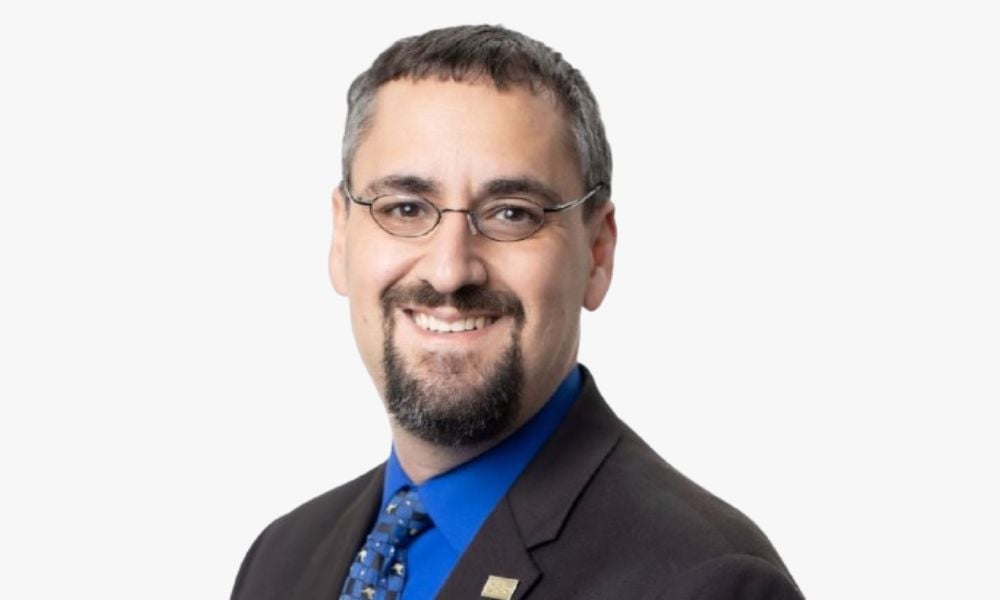

When it comes to the great wealth transfer, it should come to no surprise that firms are doing all they can to figure out how to cater to the next generation.
For some advisors, it’s a priority. Others think the whole idea of pursuing wealth down the family tree, is “utterly preposterous and will be a complete failure for every advisor.”
In a recent interview with Chuck Failla, CEO of Sovereign Financial, for goRIA sponsored by InvestmentNews, industry veteran Michael Kitces offered a “controversial take,” arguing that advisors should focus on serving their core client base of retirees and affluent individuals, rather than trying to chase after the millennial inheritors of wealth.
He said this would be an inefficient and ineffective strategy for most advisory firms. He used an analogy of a nursing home trying to attract millennials.
“If you run a high-end nursing home in an affluent area, like $20,000 a month and your nursing home is profitable, it's going really well, except you have one fundamental problem. Your customers die on a regular basis,” he said.
How would one handle that as a nursing owner? He suggests an option where the nursing home would do “game nights” for the grandchildren, installing iPads and Xboxes in rooms and lounges.
“In what world do you possibly think a young millennial is going to want to move in a pop pop's nursing home?” he said. “If your biggest problem is that your patients die on a regular basis, go find more old people who have money, who need a nursing home. We're not running out of them.”
“I wouldn't figure out how to find millennials who are inheritors of pop pop’s money. I would build a relationship with the local discharge nurse at the hospital.”
Just like how a nursing home can't realistically expect the millennial grandchildren to move into the nursing home after their grandparents pass away, advisors can't expect to suddenly start serving the millennial inheritors effectively.
However, those who run multi-family-office-style environments are different, because there’s “an actual multi-generational value proposition there.”
“But for most advisory firms that specialize in retirees, the idea that the millennial clients are going to think you're hip is, I think, grossly unrealistic,” he added.
Advisors aren't all so sure. While it’ll likely be decades before a millennial might need a nursing home, “those same millennials need solid financial advice now," said Mitchell Kraus, principal at Capital Intelligence Associates, in an email.
“While they might not be as profitable now, they will bring in revenue. Advisors do need a service model to handle these clients. They have less needs and one needs to give them less time,” he added.
Cynthia Luna, principal and wealth advisor at Moonshot Financial Group, believes that if advisors don’t have offerings for the next gen of investors with no interest in catering to them, “you are limiting your ability to sustain your practice,” she said. “You have to have a mechanism where you are learning about evolving client needs.”
Samuel Wagner, founder and chief financial guide at WealthGuides, who’s also a millennial, agreed with Kitces.
“The question you should be asking yourself is, whether I’m committed to changing the niche of my clientele to younger clients,” he said in an email. “If the answer is yes, I would hope you are a young advisor or firm partner that plans to be around for another 10 to 20 years. If the answer is no, stick with your current clientele and their referrals.
“If you serve an older generation and a different niche, you won't win over the younger generation too,” he added. “Don't try to fit a square peg in a round hole.”
Firms are also increasingly receiving requests from clients about services and education they offer to their next generation in initial prospect interviews.
“Seeking to help educate a client’s children or grandchildren is not only valuable to them but the client as well,” said Megan Wiley, financial planner at Badgley Phelps Wealth Managers. “Education is the first and most important step to ensure no low hanging fruit is being left behind.”
Additionally, a recent Fidelity survey found that respondents across income and asset levels agree that Americans need to improve their comfort level about discussing family finances.
More than half, 56 percent, said their parents never discussed money with them, yet majority, 81 percent, would have benefited from financial education at an earlier age.
Meanwhile, 70 percent said they are hopeful the next generation will attain a higher level of wealth than what they have today.
“Financial planning as a family is key to preserving generational wealth,” Fidelity's announcement stated.

Report says firms risk restricted growth unless they elevate their offerings.

Agency says investors believed they were backing loans to NFL players.

If bond yields stay higher, there could be a pull-back in shares.

Greenback set for eighth consecutive weekly gain.

Regulatory pressure means banks requiring clarity on risks.
Streamline your outreach with Aidentified's AI-driven solutions
This season’s market volatility: Positioning for rate relief, income growth and the AI rebound
